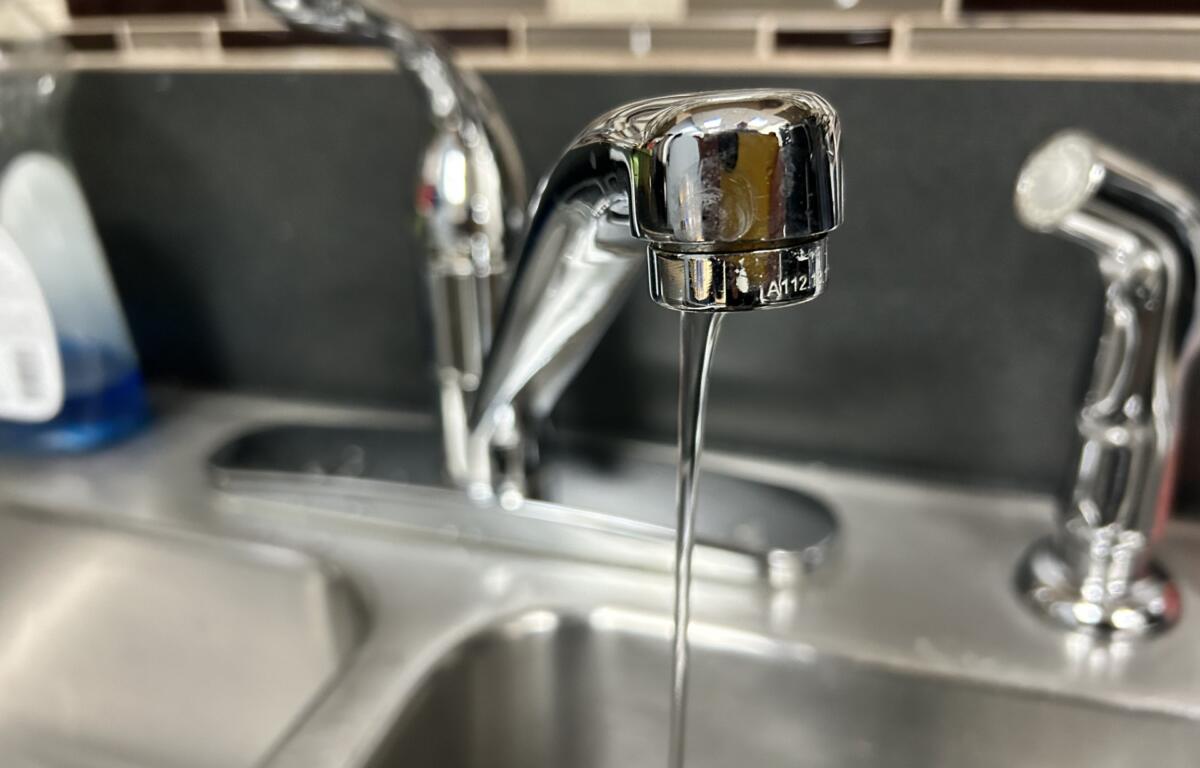ASHEVILLE, N.C. (828newsNOW) — Lead has been detected in water samples from several homes and schools that are part of the Asheville water system, officials said Thursday.
After Tropical Storm Helene destroyed the city’s water distribution system, the pipes were dry for several weeks. Once an emergency bypass line was repaired, the city treated the raw, unfiltered water with chlorine, which can corrode pipes, Asheville Water Department Public Information Officer Clay Chandler said during a recent Small Business Information Session.
LIVE STREAM: HELENE RECOVERY SMALL BUSINESS INFO SESSION
The water department — in partnership with the North Carolina Department of Environmental Quality and the federal Environmental Protection Agency — launched a sampling program focused on testing for lead and copper from 25 sites across the distribution system, officials said Thursday.
Lead exposure is particularly hazardous to pregnant women, breastfeeding mothers and children younger than 6. Plumbing in structures built before 1988 have increased potential to be a source of lead exposure if water sits undisturbed in plumbing for 4-6 hours, officials said. That’s why the Water Resources Department treats water with zinc orthophosphate, which provides corrosion control throughout the water distribution system, including private property plumbing.
“Due to the piping configuration at the North Fork Water Treatment Plant, Water Resources was unable to treat the raw reservoir water with zinc orthophosphate for approximately 19 days,” a news release from Asheville officials said.
Lead sampling results
Water samples were sent to an independent, third-party lab, and results indicated detectable lead levels from pipes in seven schools, the news release from the city said. All copper levels were well below regulatory limits. It is important to note lead levels were not found in the water source, but rather from water traveling through older pipes owned by customers.
Schools with detectable lead levels include:
- County elementary schools: Oakley Elementary School, Sand Hill Elementary School, Charles C. Bell Elementary School, Glen Arden Elementary School
- City elementary schools: Lucy S. Herring Elementary School, Hall-Fletcher Elementary School
- Participating private school: Odyssey Community School
“At the time of sampling, the schools had been closed and water had been sitting in the pipes for two to three weeks. Since schools reopened, students have not consumed tap water. Bottled water is being provided to students and staff for drinking purposes,” city officials said.
Schools are following EPA recommendations and implementing protective measures, including installing National Sanitation Foundation-certified filters to reduce lead and assessing plumbing for potential sources of exposure.
Out of an abundance of caution, Water Resources also sampled the raw water at North Fork for lead and are awaiting results from a third-party contract lab, according to the news release. Source water at North Fork, Mills River and Bee Tree water treatment facilities were last tested for lead and copper in July 2024. All results were below detection limits. Water Resources records going back decades do not show detectable levels of lead in the source water at any time.
Free lead testing available
Water Resources will be re-sampling affected schools and private residences over the coming months to monitor progress and verify the effectiveness of corrosion control treatment, city officials said in the news release. Residents, particularly those in homes built before 1988, are strongly encouraged to participate in Asheville’s free lead and copper testing program. To request a testing kit, or for more information on protecting against lead exposure, contact Water Resources at 828-259-5962 or email leadprevention@ashevillenc.gov. Additional information is available online at ashevillenc.gov/leadawareness.
Here are some resources that can provide more information about acceptable lead levels in water, lead exposure and its potential health effects:
- Rules Governing Childhood Lead Poisoning Prevention Program 15A NCAC 18A.3100
- Centers for Disease Control and Prevention (CDC) Lead Page
- Environmental Protection Agency (EPA) Lead Page
- CDC Childhood Lead Poisoning Prevention
Learn more about lead in water by visiting the City of Asheville Lead Awareness website at www.ashevillenc.gov/leadawareness or by calling 828-259-5962.
We are committed to keeping you informed. As we receive additional information on this situation we will send that out to our staff and families. We will also share the results of our additional tests as soon as they are available.


